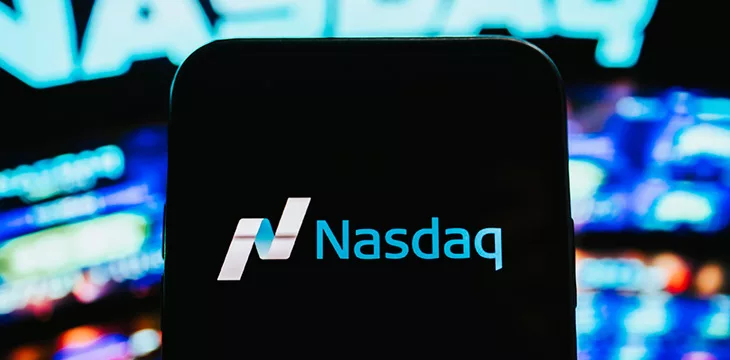|
Getting your Trinity Audio player ready...
|
United States-based stock exchange Nasdaq (NASDAQ: NDAQ) has launched the first exchange artificial intelligence (AI) powered order type after receiving the green light from the Securities and Exchange Commission (SEC).
Nasdaq confirmed that the new order type will improve efficiency and performance while prioritizing consumer safety. Dubbed the Dynamic Midpoint Extended Life Order (M-ELO), the offering relies on AI to offer real-time changes to the holding period for trading parties.
Order types are tools used to assist users in trading stock at the current best available price, generally deployed when the primary aim is to trade immediately. Typically, order types use specific software instructions, but Nasdaq is keen on pushing the frontiers using AI with the ability to “recalibrate itself.”
According to Nasdaq, the dynamic M-ELO will offer users the benefits of improved liquidity and execution quality improvement outcomes, eliminating delays for both parties. The company noted that preliminary studies revealed that the absence of lags led to high-quality executions, a spike in fill rates, and a noticeable reduction in mark-outs.
“As part of our commitment to modernizing markets, Nasdaq takes a thoughtful long-term approach to technology adoption and advancement to ensure we drive innovation in a responsible manner,” said President of Market Platforms at Nasdaq Tal Cohen.
“AI powered Dynamic M-ELO is a purpose built solution that encapsulates our ambition to cultivate the quality of our markets and underscores our commitment to delivering innovative products and tools that benefit all market participants,” added Cohen.
The offering is not the first time Nasdaq is leaning on AI to improve its offering as it introduced a predictive AI for the U.S. options market. Nasdaq’s tool relies on AI to sift through over 1.5 million individual options symbols, predicting their potential demand on which strikes are likely to be traded.
Before the rollout of the Strike Price Optimization Program, analyzing symbols was an arduous task requiring manual effort. Nasdaq disclosed that the changes from the predictive AI tool are scrutinized by staff to reduce the possibility of errors.
SEC has its sights on AI
As with digital currencies, the Gary Gensler-led SEC has its crosshairs focused on AI, seeking to crack down on potential conflicts of interest that could arise when financial firms integrate machine learning models.
Gensler warned that relying on AI could trigger financial volatility and collapses in the capital markets apart from conflict of interest issues. U.S. regulators have already opened probes on the use of AI in securities, with the Massachusetts Secretary of the Commonwealth, William Galvin, sharing similar sentiments with the SEC.
“If deployed without the guardrails necessary to ensure proper disclosure and consideration of conflicts, I am concerned that this technology could result in harm to investors,” said Galvin.
In order for artificial intelligence (AI) to work right within the law and thrive in the face of growing challenges, it needs to integrate an enterprise blockchain system that ensures data input quality and ownership—allowing it to keep data safe while also guaranteeing the immutability of data. Check out CoinGeek’s coverage on this emerging tech to learn more why Enterprise blockchain will be the backbone of AI.
Watch: Blockchain can bring accountability to AI

 07-18-2025
07-18-2025 





